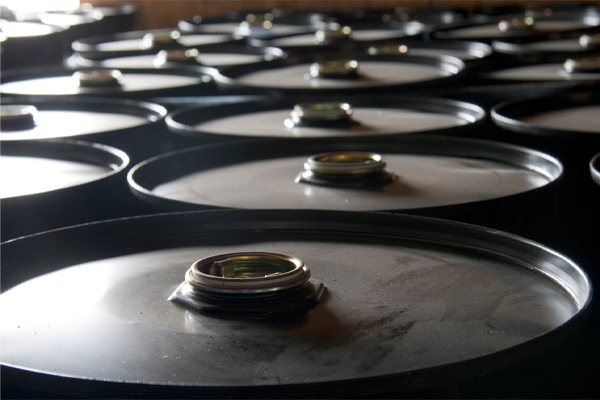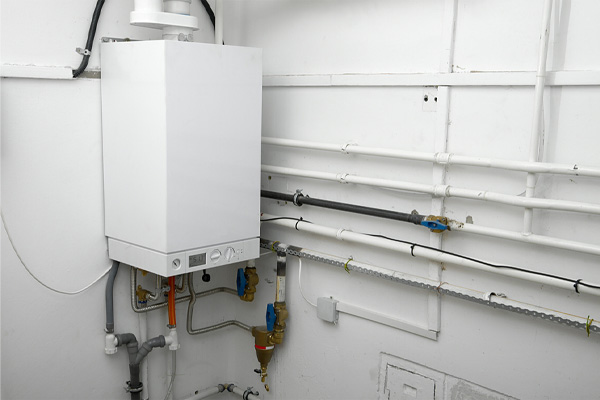Contents

Winter can be quite challenging in certain regions of the US. Homes require reliable heating for comfort and safety during these cold months. This means getting a tune-up for the oil boiler or furnace and stocking up on home heating oil. However, there are several different types of heating oil, each having its own unique characteristics and applications. Some common oils are kerosene, #1 heating oil, diesel fuel, and #2 heating oil. The last one is arguably the most important fuel for residential heating needs.
What Are The Different Types Of Heating Oils?
Fuel oils are all derived from crude oil. They are byproducts of the distillation process with each coming from different stages. Fuel oils can generate a large amount of heat when burned in a furnace. They are distillates with different weights due to the degrees of refinement that they undergo. The list below is arranged from the lightest to the heaviest:
1. Kerosene

This is the lightest fuel oil for home heating. It is made by refining #1 fuel oil and filtering impurities. The result is a much cleaner burn so it’s safe for indoor use. The liquid has a lower viscosity and boiling point. Kerosene is often used to power portable heat sources outdoors. It can also be used indoors if there is no furnace installed such as in new construction sites. Many rely on kerosene during power blackouts and camping trips. Kerosene lamps can provide light that lasts for a long time. Some of these lamps have beautiful designs and odor suppressors.
2. #1 Fuel Oil
Since kerosene is derived from #1 fuel oil, we can expect many similarities between the two. Since the latter has less processing, it is a bit heavier with higher viscosity and more impurities. It is often used as an energy source for portable heaters and outdoor stoves. Since it does not produce a clean burn, it should not be used for indoor applications. The exhaust fumes can be harmful to those who breathe them in. Outside, the impurities are diluted in the air so it does not cause as much harm.
3. Diesel Fuel

This should be familiar to most people since it is widely available across the country in fuel pumps. There is untaxed diesel fuel that is recognizable with its red dye. This is typically used for construction machines and other off-road vehicles. Its low sulfur content is deemed as eco-friendly. On the other hand, taxed diesel remains undyed but has a natural light green tone. This is the fuel used for cars and trucks on public roads. The only real difference is the higher price. As for home heating applications, diesel can be mixed with #1 fuel oil to minimize sludge formation during cold months. However, it is best to discuss this with a heating expert beforehand.
4. #2 Fuel Oil

Diesel fuel and #2 fuel oil are virtually the same fuel in terms of chemical composition. The main difference lies in their intended use. #2 fuel oil enjoys a tax-free status to keep prices low and help people heat their homes. This is an essential need in winter, after all. It goes into boilers and furnaces instead of cars. It even has the same red dye as in untaxed diesel fuel. Many refer to this fuel oil as home heating oil because of its designated application.
You can find #2 fuel oil mixed with #1 fuel oil for lower viscosity and greater furnace efficiency. Some companies refer to this as the kerosene mix or the home heating oil winter blend.
Given the similarities between these two types of fuel, it is possible to use them interchangeably in theory. However, there are reasons why people don’t generally do this in practice. If you ever run out of fuel for your furnace and deliveries are delayed, then you can go to a pump and purchase diesel as an alternative. It’s impractical for long-term use since diesel is more expensive than N#2 fuel oil but it may be worth it during emergencies.
The reverse, putting #2 fuel oil in a diesel car, should never be done. It is illegal because of the tax regulations. If you get pulled over and cops see that you are using the red-dyed fuel, then you may face charges. Adhere to the law and use each product for its intended applications.
#2 Fuel Oil For Home Heating
Of the four home heating options mentioned, #2 fuel oil’s properties make it the most widely used. It can produce the greatest amount of heat as confirmed by its high BTU rating. When homeowners contact an oil supplier for an oil delivery, they usually send out trucks filled with #2 fuel oil. They will inform their customers if they are bringing in other blends that may be suitable for the oil tank installation or the prevailing temperatures. For example, aboveground tanks installed outdoors are more vulnerable to cold weather. #1 and #2 fuel oils may be mixed together in various ratios to create a fluid blend that is less prone to sludge formation. #2 fuel oil may also be mixed with kerosene for a cleaner burn.
Contact Tevis Energy For Your Home Heating Oil Needs

Tevis Energy is a trustworthy HVAC company and heating oil delivery company that services central Maryland and southern Pennsylvania. Our company offers affordable and the most competitive heating oil prices in the area. Our goal is to provide you with excellent products and services. When you choose us to be your oil supplier, you can rest easy knowing that you will have correct and prompt heating oil deliveries at the best possible prices. Furthermore, we offer various heating oil delivery plans and financing options, as a way to customize your oil deliveries. Be sure to call us today to learn more.
Tevis Energy has certified and highly trained HVAC technicians to cater to all your heating and cooling needs. We guarantee that each of our techs has the experience, skills, and knowledge to provide excellent HVAC services. Our team can assist you with installations, repairs, maintenance, and much more. Our superior HVAC solutions always come at affordable costs.
Call us today to learn more about the products and services our company offers. We provide free, in-home estimates.
You can click here to contact us now or call us at (410) 876-6800 to find out more!
Posted in Blog
Tags: #1 vs #2 heating oil, #2 heating oil vs off road diesel, 2 heating oil near me, 2 heating oil vs diesel, 2 heating oil vs kerosene, can you mix kerosene and home heating oil, difference between #1 and #2 heating oil, fuel oil 1 vs 2, heating fuel delivery, is #2 heating oil the same as diesel, what is home heating oil, what is the difference between diesel fuel and number 2 heating oil